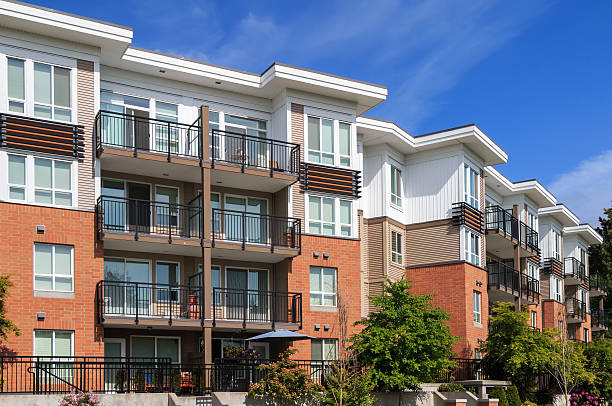
You may be surprised by all the different aspects you should consider when you've never purchased a condo which is often called a "condo". A the lakegarden residences, however, is distinct from a home. You'll likely have adjoining walls that are shared with neighbors, as well as additional physical components distinct in a home that is freestanding.
Additionally, the entire process you have to follow before you decide to apply for a mortgage could differ significantly.
Who should own a condo?
You should ask yourself "Are condos something you like?" What exactly does this refer to? A city dweller is the sake of one. The majority of condominiums are within urban environments. Many condos are being built within the city's core. There are some that even have conveniences such as banks, grocery stores as well as other companies. Along with that ease of access could come increased noise and congestion.
The Homeowners Association is one of the numerous things that condo owners are required to comply with. It is an agreement of covenants and conditions and restrictions (CC&Rs) that lists things you, as a condo owner, must adhere to in order to stay in the condo. If you discover that you won't be capable of observing the CC&Rs, condo life may not be the right choice suitable for you. Failure to comply could result in you having to be fined, forced to comply, or even sued.
Condos could be an ideal choice for a certain type of person. For instance, someone who's first time home buyer and cannot purchase a higher-priced single-family residence. Condos can also provide the benefit of low maintenance. This is a benefit for people who want to live in the smaller space of their home. The condo is an ideal option for those who is looking to live within the middle of a large city.
Troubles with loans
The purchase of the property the lakegarden residences could be harder than purchasing an apartment. Lenders are very careful in granting loans to these types of homes. Most lenders require a percentage of units to be "owner-occupied" or inhabited by people.
Another restriction may be how many condos are allowed to be owned by a single investor. The lenders generally do not permit a single person to hold greater than 10% ownership of the building. Many times, lenders will be required to regulate the occupancy rates of the building. Some lenders require at least 90% of units sold prior to they will consider financing.
The lenders might also have stricter lending-to value (LTV) ratios and limitations on those who purchase condos. LTV is the percentage of what a home is worth compared to the amount owed. If you paid 20% of the purchase price for the house, the LTV is at 80%.
Section 234 (c) mortgages are backed by the Federal Housing Administration and can be used for a period of up to thirty years. These terms are exactly the same for the borrower similar to those for residential loans. However there are a number of restrictions that apply to condos.
Other Charges
There are other expenses that come with owning an residence. While the HOA offers insurance but you could have to purchase additional homeowners insurance. Read all documents carefully to be sure that the insurance offered by the HOA does not shift risk onto you to maintain lower premiums.
Be aware of the monthly condo fee. Owners of condominiums complex are required to pay fees for the ongoing maintenance and repair of the common areas of the complex. The fees are usually used to maintain areas like elevators and lobbies as well as pools, recreation centers as well as parking areas and the grounds. The funds can be reserved for major repairs such as roof replacements or exterior painting. Condo fees vary greatly depending on the size of property and the facilities offered.
The Bottom Line
Condominiums can be a good investment for the right buyer in the right location during times of difficulty, though they can be less easy to purchase and sell more than detached houses.
